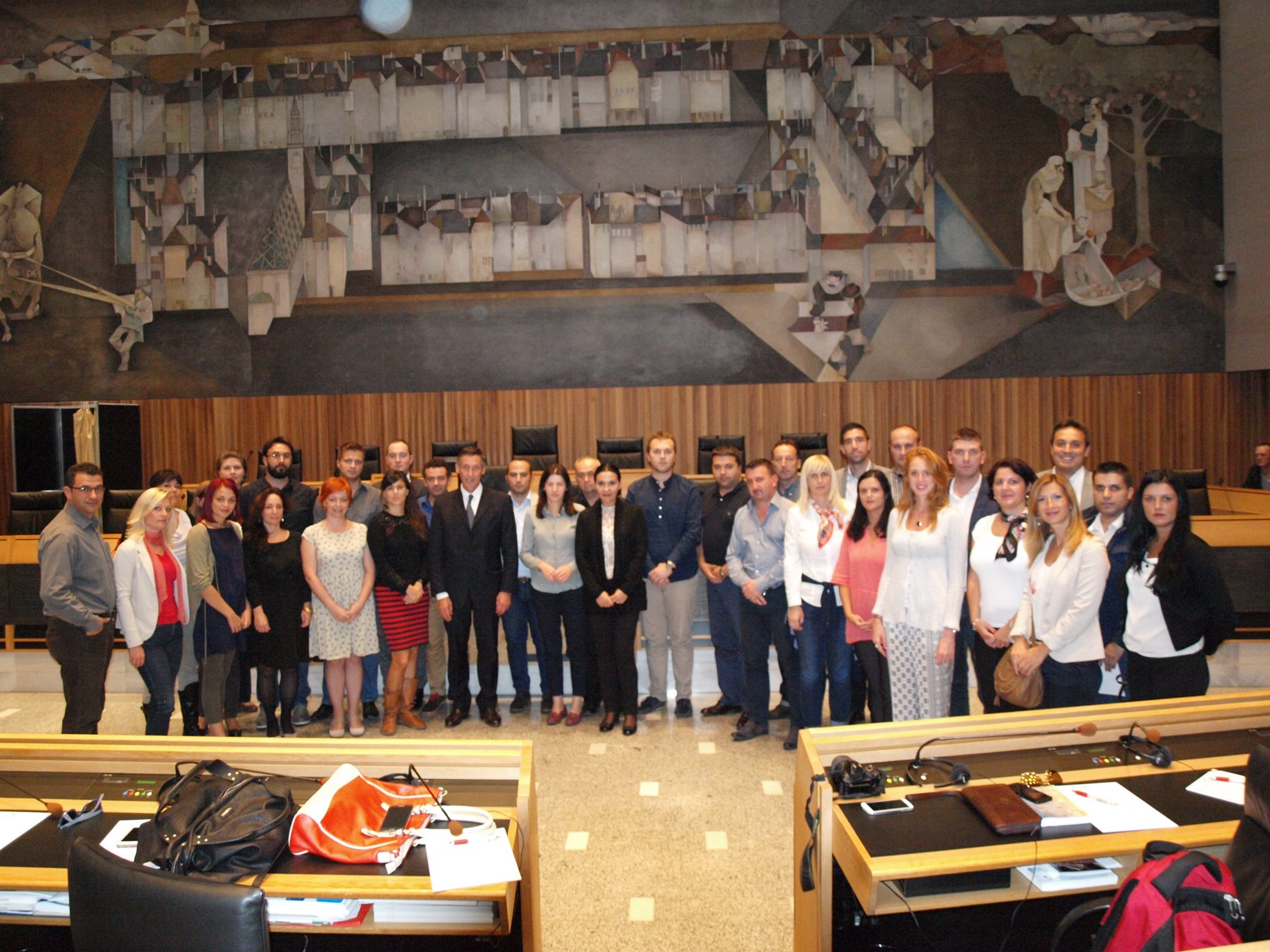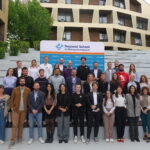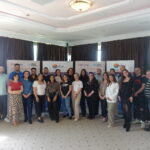RAD study visit to the region of Trentino-Alto Adige/South Tyrol
From 9 to 12 September, within the Regional Academy for Democracy’s 2014 program, we have undertaken a study visit to the region of Trentino-Alto Adige/South Tyrol, so that our participants could introduce themselves to one model of overcoming ethnic tensions that is often labeled as “successful”. In the course of the visit, 33 participants in RAD’s program have met provincial councils’ members and chairs, civil society activists, journalists and distinguished academics who were all willing to share their knowledge and experience.
We first visited the premises of our partner in the region, the Osservatorio Balcani e Caucaso (OBC). This organization, active for more than a decade, is built around a strong research capacity; their approach is multidisciplinary, and they cover a range of issues, following what they perceive as needs of the region. For instance, OBC today engages in issues from architecture and urban planning to organic agriculture – all in order to help societies in transition. Their web site has gradually become an important resource – with at least two pieces of information (including analysis) published daily! These information are authored by over 20 associates (correspondents).
Our hosts and partners, Osservatorio Balcani e Caucaso, pride themselves into publishing over 400 interviews every year focusing on important developments in the two regions. This in turn makes OBC the go-to place on the web, available in Italian, when it comes to Balkans debates.
Our next stop was Trento, where RAD group was met by Mr. Bruno Dorigatti, Member of Trentino Provincial Council. Mr. Dorigatti led us to the province’s assembly, where he addressed participants’ questions.
Mr. Dorigatti emphasized that every decision affecting the entire region of Trentino-South Tyrol must be approved in both provinces (by a simple majority). Real power thus lies in the two provinces, not on the regional level.
Political system of Trentino differs in the way that it contains minority safeguards (guaranteed representation), unlike Bolzano where a proportional electoral principe remains in place. Ethnically and linguistically speaking, Trentino is a province where Italians form a clear majority. Still, grievances against Rome do exist, mostly in labor and education. Motivated by a question from our participants, our host emphasized agriculture as one field of policy where many may learn from Trentino: chiefly, how it enabled the growth of the “societa cooperative” (the “cooperatives”).
Asked whether the model of autonomy developed in the region could be exported to other countries, Mr. Dorigatti answered positively, and emphasized the importance of euro-regions in that particular context (autonomy followed by closer cooperation between neighboring regions).
We concluded the first day with a visit to the visually stunning Museo Storico del Trentino, situated within two abandoned highway tunnels. Here we were met by Mr. Giuseppe Ferrandi, museum’s director, who first led us through current exposition (“La Grande Guerra sul grande schermo” devoted to representations of Great War on film) and then discussed prospects for the region’s political development.
The future of the region depends not only on the relations between two ethno-linguistic groups which are dominant, but also the future of European project as a whole, believes Mr. Ferrandi.
Perhaps the most engaging meeting came on the morning of the second day of our visit. Now in Bolzano/Bozen, RAD participants walked through the studios of Radio Televisione Italiana (RAI), providing over 700 hours of television program in three languages that are spoken in the region – Italian, German and Ladin. More than any other institution we visited, RAI “sender” in Bozen represents a showcase in its unique approach to autonomy and equal representation. With separate program directors, technicians who must be able to speak the language of the program they are editing, different approach to each of the language groups in terms of choosing content – participants were impressed and asked many questions. Lastly, they had an unique opportunity to hear greetings in Ladin live, language spoken by no more than 20,000 people – in the whole world.
In order to meet their viewers’ taste, RAI editors go as far as choosing news from two different “pools” – one for German speakers and another for Italian speakers.
Next up was provincial assembly of South Tyrol, where our host was Mr. Thomas Widmann, President of the Assembly and one of the leaders of the party that has ruled the province for 70 years – the South Tyrol People’s Party (SVP). Here one could hear strong arguments in favor of autonomy:
In the 1950s and 1960s, we were among the poorest regions of Europe, and today, we are one of the richest. The root cause lies in our autonomy, and the fact that as much as 90% of our budget income remains here, in South Tyrol.
Study visit was concluded with an impressive presentation at EURAC – an unique research institution, one of whose institutes isspecialized in studies of minorities. The presentation, discussing numerous aspects of the region’s autonomy affecting daily lives of its citizens was followed by a stream of questions and comments.













